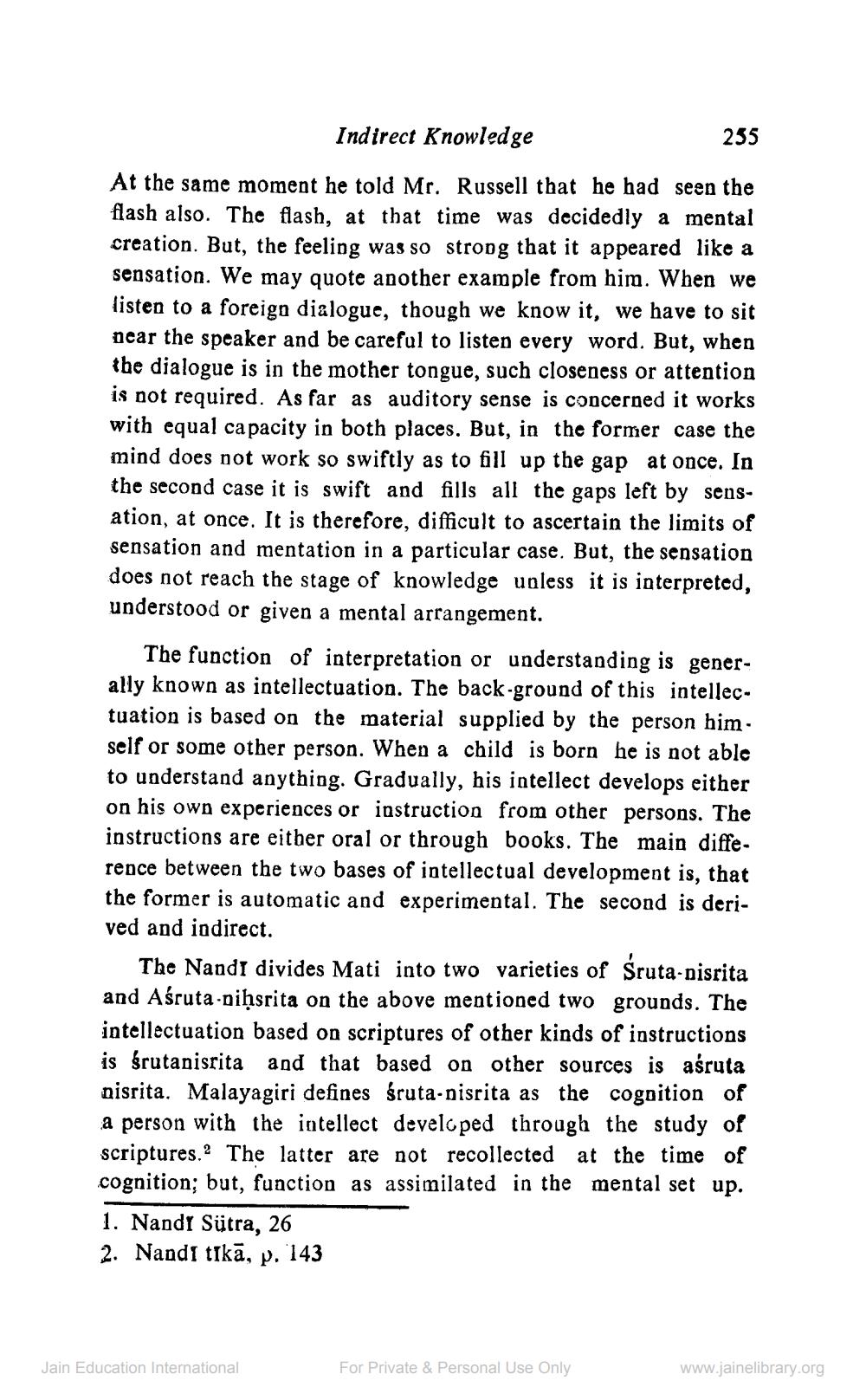________________
Indirect Knowledge
235
At the same moment he told Mr. Russell that he had seen the flash also. The flash, at that time was decidedly a mental creation. But, the feeling was so strong that it appeared like a sensation. We may quote another example from him. When we listen to a foreign dialogue, though we know it, we have to sit near the speaker and be careful to listen every word. But, when the dialogue is in the mother tongue, such closeness or attention is not required. As far as auditory sense is concerned it works with equal capacity in both places. But, in the former case the mind does not work so swiftly as to fill up the gap at once. In the second case it is swift and fills all the gaps left by sensation, at once. It is therefore, difficult to ascertain the limits of sensation and mentation in a particular case. But, the sensation does not reach the stage of knowledge unless it is interpreted, understood or given a mental arrangement.
The function of interpretation or understanding is generally known as intellectuation. The back-ground of this intellectuation is based on the material supplied by the person himself or some other person. When a child is born he is not able to understand anything. Gradually, his intellect develops either on his own experiences or instruction from other persons. The instructions are either oral or through books. The main difference between the two bases of intellectual development is, that the former is automatic and experimental. The second is derived and indirect.
The Nandi divides Mati into two varieties of śruta-nisrita and Aśruta niḥsrita on the above mentioned two grounds. The intellectuation based on scriptures of other kinds of instructions is srutanisrita and that based on other sources is aśruta nisrita. Malayagiri defines śruta-nisrita as the cognition of a person with the intellect developed through the study of scriptures. The latter are not recollected at the time of cognition; but, function as assimilated in the mental set up. 1. Nandr Sütra, 26 2. Nandi tikā, p. 143
Jain Education International
For Private & Personal Use Only
www.jainelibrary.org




